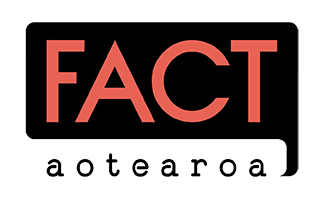The Royal Commission into COVID 19 Lessons Learned has opened submissions for their next phase. They say “we want to hear from you on how certain key Government decisions affected or changed your lives during the pandemic.”
Conspiracy theory groups are excited. They see this as their opportunity to tell their truth. And good for them, eh? Exercising your right to be heard is something we should all do. So you should think about doing the same. The submissions portal is here.
And what might you say? Well, most of us went through hardships and difficulty in the first years of the pandemic, so you could talk about your experience. The conspiracy theorists are keen to rewrite history and emphasise injustice and mistakes, so how you felt at the time is important.
It’s not just about having a say though. Conspiracy theorists want to use the commission as a propaganda vehicle. Calls for submissions are a great way to rally the movement. And whether or not their submissions hold water, they can point to them as “evidence.”
Their dream is to have more video content they can use to persuade. Best case, televised testimony, but they’ll settle for a dramatised reading of their own script on YouTube. And emotive stories of harm are gold. We predicted this back in 2023.
We hope that Grant Illingworth will be even-handed, as he promises. He just gave an interview to Lloyd Burr at Stuff.
There is an element of hypocrisy in us telling to you submit to counter conspiracy theory stories. It’s not ideal when government inquiries and commissions are hi-jacked into PR for people with a cause. But this is the world we’re in now.
The biggest claim the conspiracy theorists want to make is that vaccines didn’t work and caused serious harm. David Hood has done the analysis work to give the lie to this.
It’s great that people have the cathartic experience of telling their story back to government. Stories are useful and help us understand how people feel. People’s experiences are real! But their explanation of their experience may not be real. Stories aren’t facts.
Every day in New Zealand, people fall ill. You probably know someone who called in sick today. So when something new, but common happens – like a COVID vaccination – many many people who would have been unwell anyway are unwell the next day.
For two things to be causally connected, it takes more than just one thing happening after another thing. There has to be evidence that makes that link plausible. Otherwise you’re just a rooster thinking your cock-a-doodle-do makes the sun rise.
Conspiracy theorists have been exploiting this fancy-named “post hoc ergo propter hoc” fallacy with all their might, urging people to report “vaccine injury” cases and then claiming the high number of reports proves their case.
Yet on the other hand, conspiracy theorists want us to forget the rammed hospitals and mass graves we saw in countries where COVID19 ran wild. We didn’t have this experience in New Zealand, but strangely in this case conspiracy theorists are unwilling to draw a causal link to public health measures working.
So. We know many people have worn out their keyboards and their patience with submissions on all kinds of things to all kinds of forums in the last few months. But we hope you have it in you for just one more.



